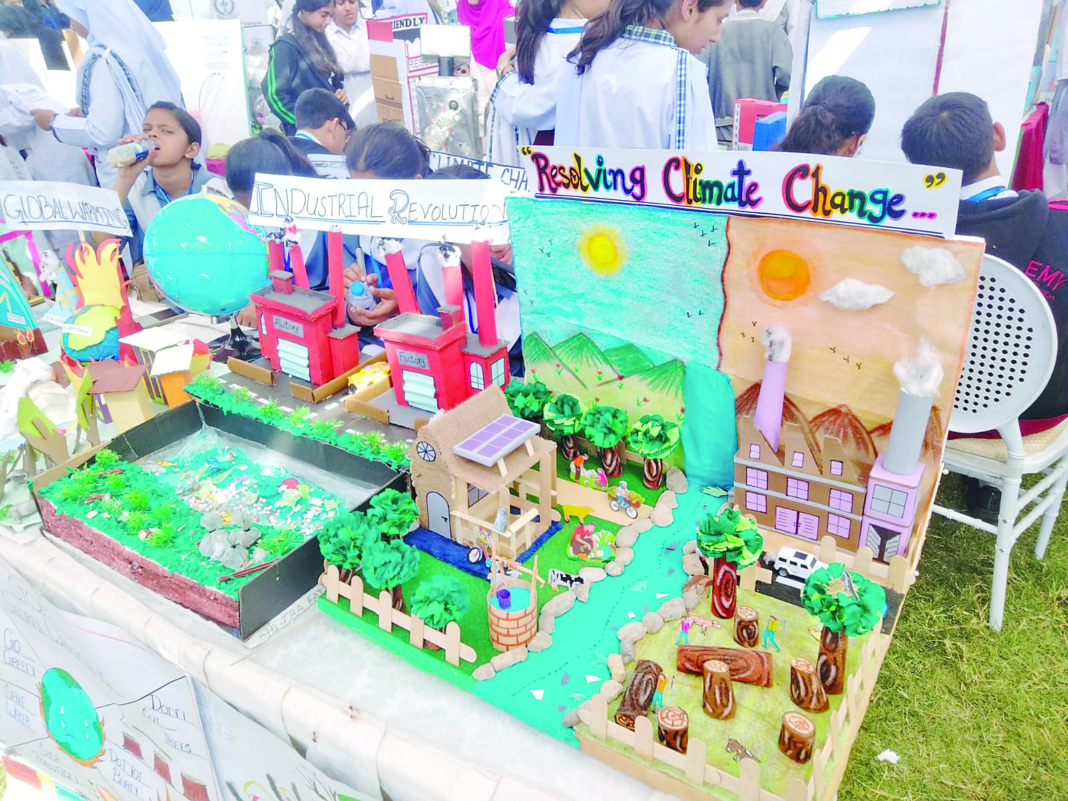In the heart of Lahore, a group of young girls in a public school gathered around a table, excitedly testing a solar-powered water pump model they had built using scrap material. Guided by their science teacher and supported by a local NGO’s STEAM initiative, the students proudly presented their project to a group of visitors, explaining how it could help irrigate small fields in their village. This is not just a science project; it’s a glimpse into the transformative potential of STEAM (Science, Technology, Engineering, Arts, and Mathematics) education in Pakistan.
In a global landscape increasingly shaped by technological advancements and interdisciplinary challenges, it has become essential to adopt educational approaches that transcend traditional frameworks.1
In a country where the traditional education system still heavily relies on rote memorization, the introduction of STEAM programs is proving to be a game-changer. Such programs focus on inquiry-based learning, creativity, and real-world problem-solving, the skills crucial for thriving in today’s fast-changing technological world.
Bridging the Gap Between Theory and Application
Pakistani classrooms have long been criticized for lacking hands-on learning. “Our students could recite Newton’s Laws, but had no idea how to apply them,” shared Ms. Asma, a physics teacher in Rawalpindi. However, with the introduction of low-cost STEAM labs in several public schools through government and private partnerships, students now engage in activities that bridge the gap between theory and practical application.
In most public schools, students often focus solely on rote learning to secure good grades. This culture prioritizes memorization over understanding, leaving the students ill-prepared to apply their knowledge in practical settings. Despite living in an era of digital literacy, many government institutions remain trapped in traditional frameworks, failing to provide the practical education necessary for students to thrive in modern society.2
Moreover, with the world rapidly moving toward AI, robotics, and digital innovation, a STEAM-based curriculum ensures that Pakistani students aren’t left behind. According to the World Economic Forum, by 2025, over 85 million jobs may be displaced by automation, but 97 million new roles may emerge, heavily relying on digital literacy, analytical skills, and creativity, all nurtured through STEAM education.

Encouraging Research and Innovation
Pakistan ranks low in global research output and innovation indexes. A primary reason is the lack of exposure and interest in science and technology from an early age. “Our children need to see science not just as a subject, but as a tool for change,” said Dr. Shazia Malik, a science educator who runs community-based STEAM clubs in rural Sindh. These clubs are helping children develop prototypes to solve local issues, from water purification to energy generation.
Women and Rural Inclusion in STEAM Education
STEAM is also playing a vital role in gender and regional inclusivity. In Balochistan, a program called Tech for Girls is training underprivileged girls in basic coding, design thinking, and problem-solving. “Before this, many girls didn’t even know what engineering meant,” said Bushra, a community coordinator in Quetta. Now, several of her students are applying for science scholarships.
Barriers to Implementing learning programs
Despite its promise, the road to widespread STEAM adoption is not without hurdles. Many schools lack the infrastructure, like labs, equipment, or internet connectivity, to support practical learning. Moreover, most teachers are untrained in STEAM methodology. “I was never trained to conduct experiments or integrate art into science lessons,” admitted a government school teacher in Faisalabad.
Societal mindsets also remain a challenge. Parents often view arts as secondary and are hesitant about unconventional careers in digital arts or entrepreneurship. However, growing success stories—like Pakistani startups in AI, biotechnology, and design are beginning to shift perspectives.
Solutions on the Horizon
Education experts suggest urgent curriculum reform, investment in teacher training, and increased public-private collaboration to scale STEAM programs. Several local EdTech companies and NGOs are stepping in with cost-effective kits, mobile labs, and online training modules to bridge gaps.
Furthermore, nationwide awareness programs, science fairs, and innovation challenges are needed to promote STEAM culture. Programs like Pakistan Science Club, CodeGirls, Science Fuse 4, and Robotics for All are already paving the way.
By 2027, STEAM Pakistan intends to achieve some decided outcomes for gender-transformative STEAM education across Pakistan, like the transformation of all government high schools (13,000+) across the country through the STEAM Pakistan School Partnership Journey, and paving the way to train science teachers. 3
The Way Forward!
If effectively implemented, STEAM education can empower Pakistan’s youth to become future innovators, engineers, digital artists, and problem solvers. It promises a future where students not only learn but create; where they don’t just memorize, but question and innovate.
The story of those young girls with the solar water pump is just one of many waiting to unfold across Pakistan. With continued efforts, STEAM education could very well be the catalyst that propels the country into a future of economic and technological progress.
References:
- https://www.thenews.com.pk/print/1272629-steaming-ahead-in-education
- https://tribune.com.pk/story/2530075/steam-education-in-schools
- https://mofept.gov.pk/ProjectDetail/NzJlYWE3MTctNTMzNy00MDVkLWJjODQtMjM3Zjc5NTYwOGU4
- https://www.linkedin.com/company/sciencefuse/?originalSubdomain=pk
More from the Author: With climate chaos triggering lower harvests, Abdul Raheem has begun to lose hope

Muniba Usman is a high school teacher and teaching trainer by profession. She has a BS (HONS) in Microbiology and a diploma in Textile and Fashion design. She has a strong passion for research, arts, reading and writing. She has written many scientific articles and fiction stories for children.

